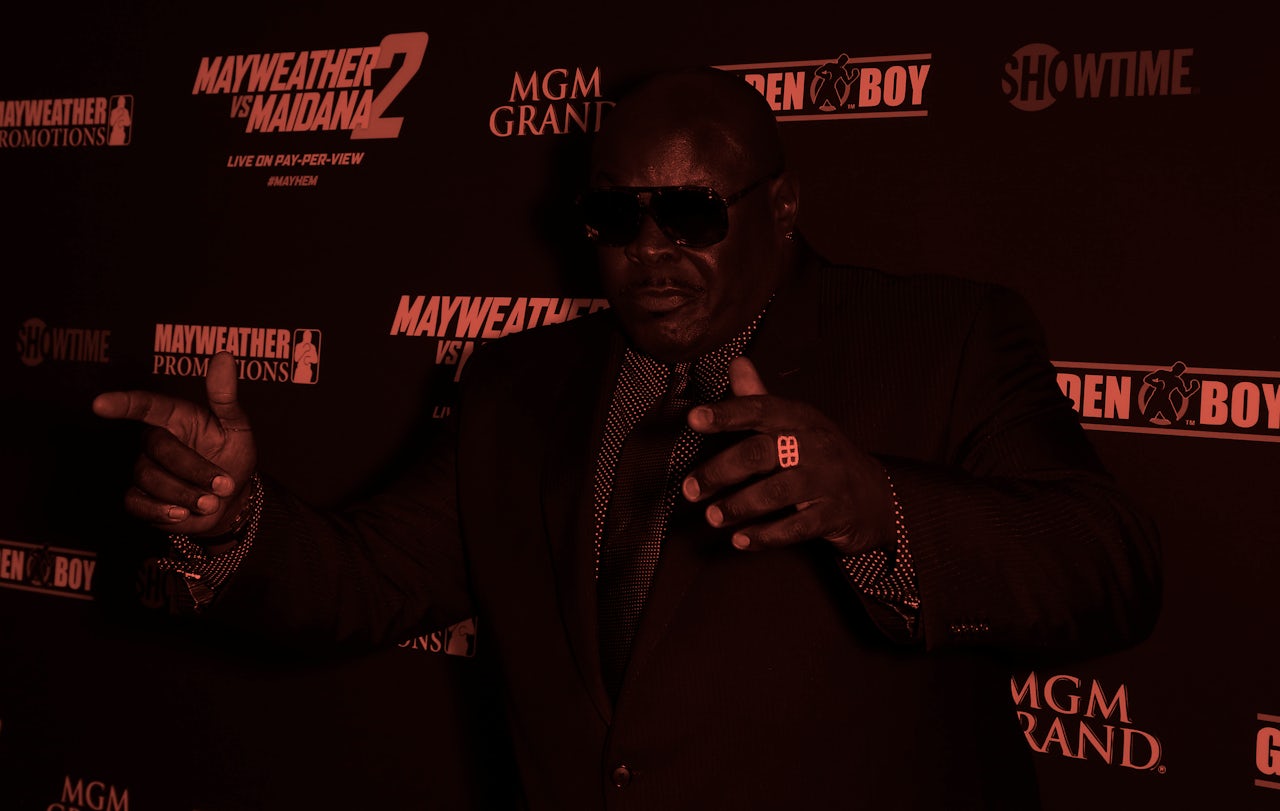The MTV show Rob & Big, which ran for three seasons from 2006 to 2008, could only have existed in its time. The quirky reality series relied on the juxtaposition of Rob Dyrdek, a scrawny white professional skateboarder from Ohio and his bodyguard Christopher “Big Black” Boykin, a heavyset black man from the South (that Dyrdek encountered enough threats at the time to warrant full-time security remains unclear). The duo seemed plucked from a Rob Schneider buddy comedy: seemingly polar opposites who find an entertaining middle ground against all odds. Boykin was Rob & Big’s unsung delight. He died of a heart attack yesterday, at the age of 45.
On the show, Dyrdek would trawl through obscure forums, Myspace messages, and Craigslist listings for antics for the pair to get into. In one 2007 episode, the duo tries to convince a man who claims to have invented a time machine to let them test the device; when they realize just how much of a kook he is, it’s Boykin’s wit that carries the scene. The success of any joke on the series always came in the form of Boykin’s charm. While Dyrdek’s persona relied on dorky outfits and an inflated sense of celebrity, Boykin was present on the show as a matter of pragmatism — he didn’t seem like he was eager for fame, and it made him all the more likeable. With Viacom footing the bill, they had what seemed like free reign to try out any scheme they stumbled upon online. And back then, the absurd adventures they’d find themselves in functioned as a window into the possibilities of the internet.
In a rare prescient move, MTV premiered the first episode of the show on iTunes. But at the time, online culture was still in its infancy, which might explain how a show as juvenile and overtly offensive as Rob & Big managed to gain traction. Produced by the same studio as Jackass, the series was driven by an adventurism that ignored the glaring inequality of the show’s premise. Boykin was portrayed as living in a pint-sized room in Dyrdek’s Hollywood mansion, and that's pretty much how he was treated. Much of the show’s humor relied on the fact that not only was Boykin very large, but that he was also black. There was also the awkwardness of watching Dyrdek call him “Big Black” or sometimes just “Black.”
A show like Rob & Big could almost certainly not exist in the era of Twitter.
There was always something uncomfortable and all too familiar about the pair: a white man guffawing unknowingly as he flaunts his privilege to the black sidekick who does all of the work while reaping fewer rewards. The innocent fantasy of the show was unable to reconcile the messy realities it ignored. After the final season of Rob & Big, rumors swirled about a falling out between the two that allegedly began after Boykin, rightfully, lobbied for he and Dyrdek to appear on more even footing. In a radio interview in 2010, Boykin spoke out about the show’s pay inequality, which Dyrdek vehemently denied in 2016.
Still, the Rob & Big managed to tap into something inventive and exciting. This was thanks to Boykin. As a foil to Rob’s frenetic energy, he offered the show a grounded curiosity. Anyone could put themselves in his shoes — an accidental celebrity thrust into the spotlight as a punchline — and feel a bit inspired. He turned his platform into a big and tall clothing brand and for three seasons got to explore weird corners of the web for an audience of millions. The biggest shame of the whole thing, really, is that Boykin didn’t get all of the opportunities that his co-star did. A show like Rob & Big could almost certainly not exist in the era of Twitter, but Boykin should be remembered for taking the unfair hand he was dealt and making the best of it. As he would say himself, all you can do is “do work.”
